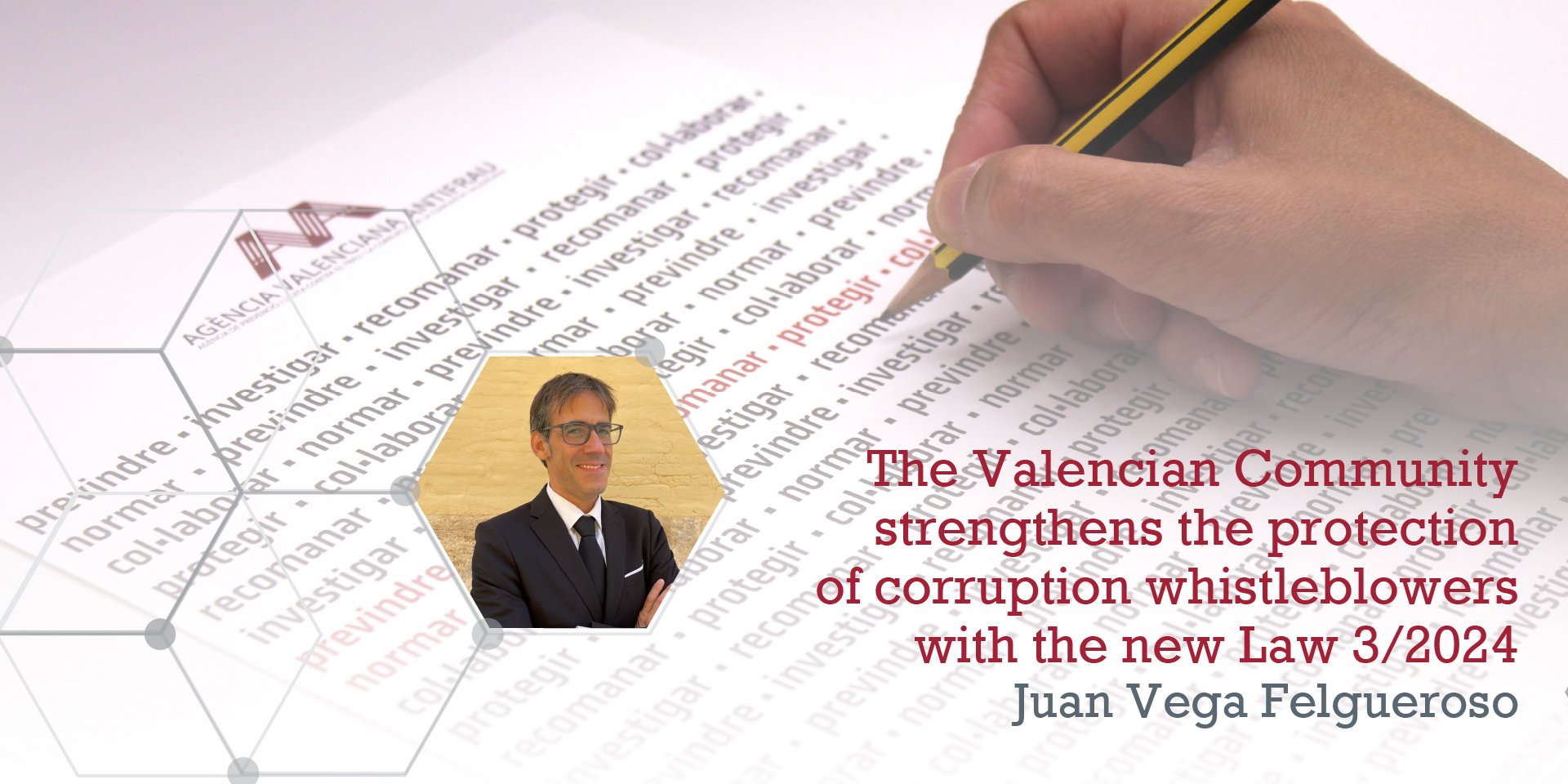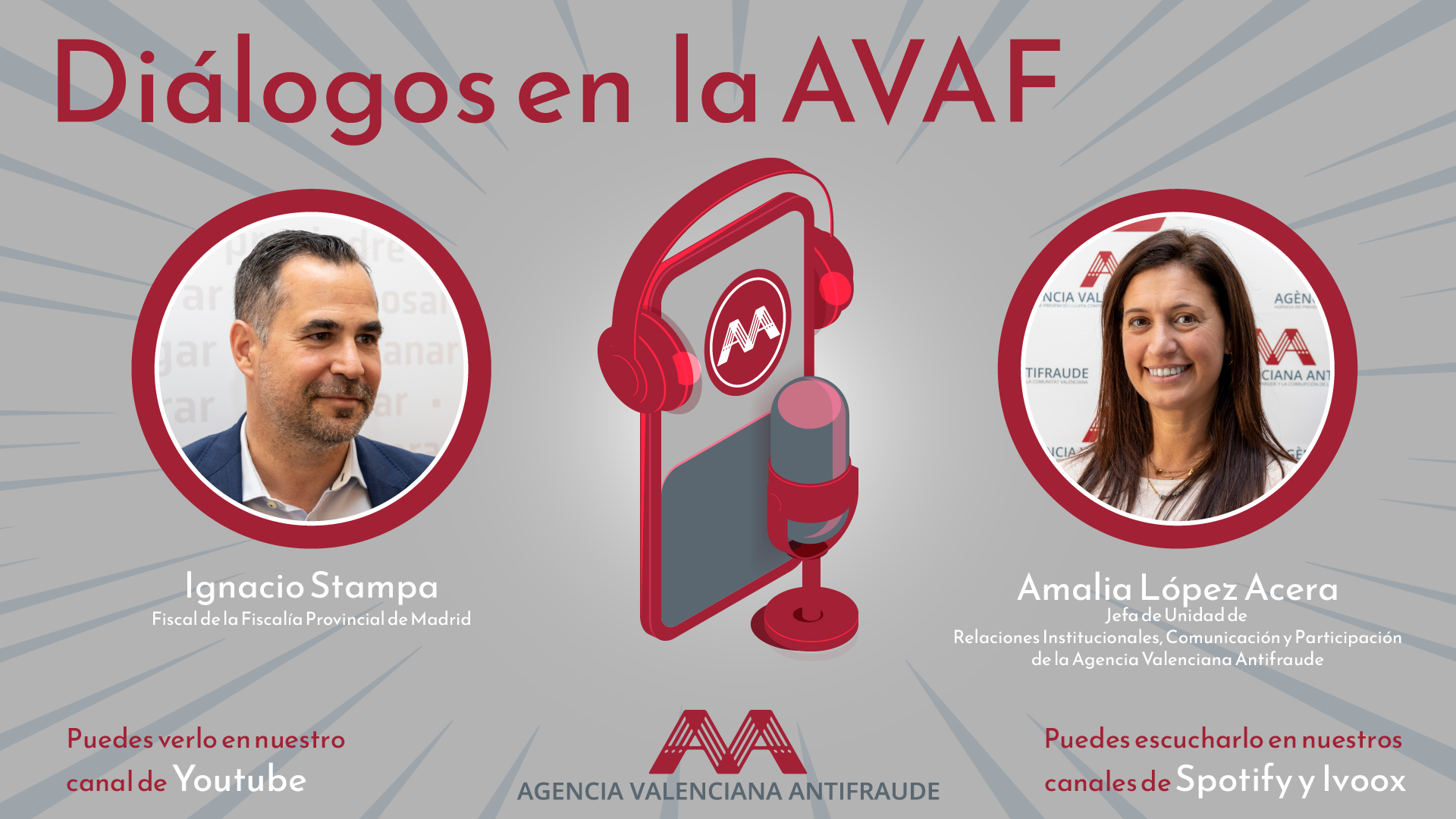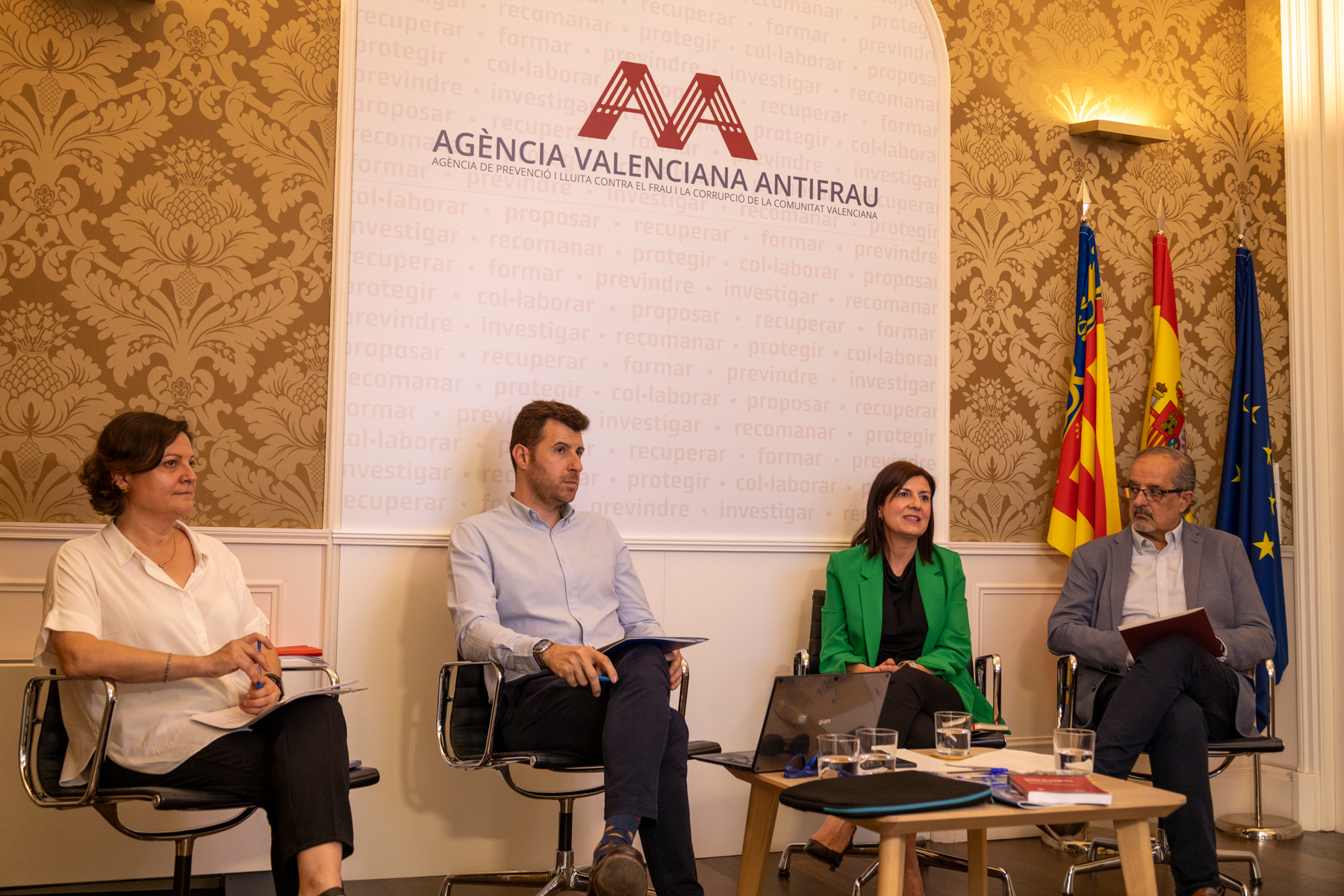The Valencian Community strengthens the protection of corruption whistleblowers with the new Law 3/2024
In the popular and cultural imagination of our society, to think about whistleblower protection is to evoke the US Administration offering a new identity and a new life, to protect those who denounce the inner workings of a criminal organization and involve their former partners in crime. This is the case of WITSEC, which emerged in 1971 to protect a New York mobster who had broken the omertà code and cooperated with the authorities to condemn the Italian mafia. In Spain, for public employees and for the legal system, talking about whistleblower protection is synonymous with the Valencian Anti-Fraud Agency. The AVAF is a pioneer in whistleblower protection with more than seven years of experience in the prevention and fight against fraud and corruption and, in addition, it was for years the only authority in Spain that offered protection to people who reported fraud and corruption in the Public Administration. The comparison between the two systems, the American and the Valencian, denotes a deep abyss between the different ways in which protection can be offered. The protection of witnesses in North America represents a drastic act of rebirth, a flight to a new horizon, while the protection of the whistleblower in Spain seeks to maintain their immunity in their original environment, creating an invisible refuge from reprisals. Both, however, share the same ideal: the defense of individual courage in the face of adversity, demonstrating that, regardless of ideology, justice always seeks to protect those who dare to raise their voices. Law 11/2016, of 28 November, on the Agency for the Prevention and Fight against Fraud and Corruption of the Valencian Community. Currently, the protection of people who report regulatory infringements in our legal system, which was only recognised by Law 11/2016 of the Valencian Anti-Fraud Agency, has gone beyond the scope of the Valencian Community and has received a strong boost in our legal system thanks to Directive (EU) 2019/1937 of the European Parliament and of the Council of 23 October 2019, but nevertheless, it should be highlighted the nature of the Valencian Agency as an authoritative voice, which notably anticipated both Directive (EU) 2019/1937, and State Law 2/2023, of 20 February, on the protection of whistleblowers and the fight against corruption, by means of Law 11/2016, of 28 November, on the Agency for the Prevention and Fight against Fraud and Corruption of the Valencian Community, which has turned out to be a legal instrument of the first order in the prevention and fight against fraud and corruption. The time that has elapsed since the entry into force of Law 11/2016, regulating the Agency, together with the solid and constant development of the Valencian Anti-Fraud Agency in the exercise of its functions, has allowed a series of technical-legal circumstances to emerge in the law regulating the Agency, of 2016, which advised its reform, which has been verified by the Valencian legislator through Law 3/2024, of 27 June, of the Generalitat, amending Law 11/2016, of 28 November, of the Generalitat, of the Agency for the Prevention and Fight against Fraud and Corruption of the Valencian Community. Law 3/2024, of 27 June, of the Generalitat, amending Law 11/2016, of 28 November, of the Generalitat, of the Agency for the Prevention and Fight against Fraud and Corruption of the Valencian Community. Law 3/2024 approved by the Valencian Parliament is the second amendment to Law 11/2016, which was already amended by Law 11/2018, of 27 December, on fiscal measures, administrative and financial management and organisation of the Generalitat, with regard to article 1.1, to clarify its legal nature; Article 14.3, which provides for the dismissal effects of the lack of express resolution in proceedings related to the protection of whistleblowers; Article 29.2, clarifying the regulations applicable to its civil servants; article 30.6 to incorporate the subjection of its economic and budgetary management to the Intervention of Les Corts, in addition to that corresponding to the Audit Office, and finally, section two of the first transitional provision, regarding the processing and approval of the operating regulations and internal regime of the agency. The current modification operated by Law 3/2024 responds, as the legislator expressly points out in its preamble, <<to the desire to complete the legislative task undertaken in order to provide the agency with a more clarifying law in the aforementioned aspects that enables a better functioning of the agency as a whole and its better service to citizens.>> Having made this important observation, the following comparative table of the new features of the 2024 Law is set out below, as well as some brief reflections on these changes. Amendment of Article 1(1) of the Object and Legal Nature New wording of Law 3/2024 Previous wording of Law 11/2016 1. The purpose of this law is the creation of the Agency for the Prevention and Fight against Fraud and Corruption in the Valencian Community, which is attached to Les Corts. Coordination protocols will be created with the Audit Office and with the Intervention of the Generalitat. It is configured as an entity with its own legal personality and full capacity to act for the fulfillment of its purposes. This law regulates the legal regime, operation and sanctioning procedure of the agency. It also establishes the criteria for the provision of the agency’s management and staff. 1. The purpose of this law is the creation of the Agency for the Prevention and Fight against Fraud and Corruption in the Valencian Community, which is attached to Les Corts. It is configured as an entity with its own legal personality and full capacity to act for the fulfillment of its purposes. This law regulates the legal regime, operation and sanctioning procedure of the agency. It also establishes the criteria for the provision of the agency’s management and staff. The modification does not bring any novelty, being in any case correct the positivization of the relations of collaboration and coordination that were already carried out between the Agency and the other bodies of the…




